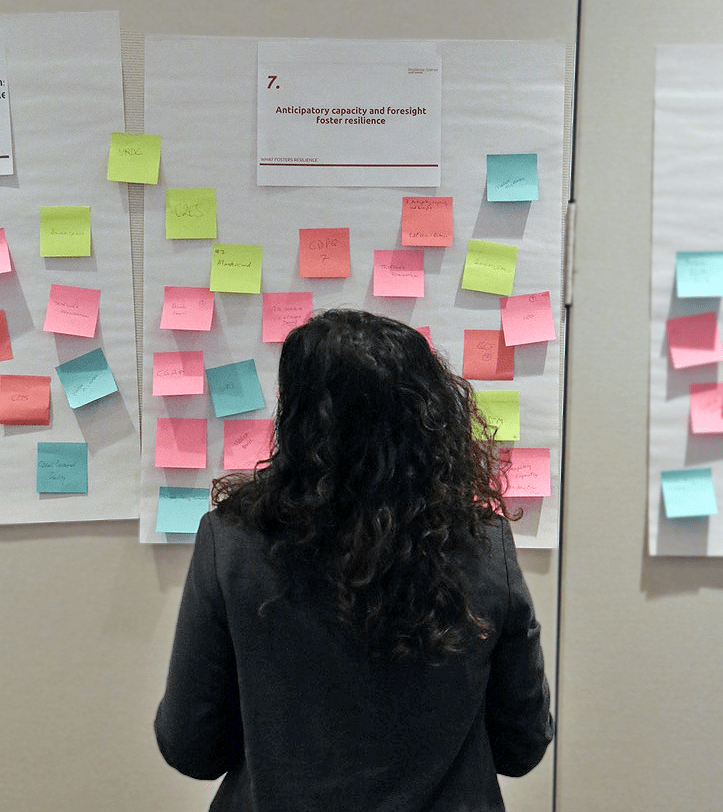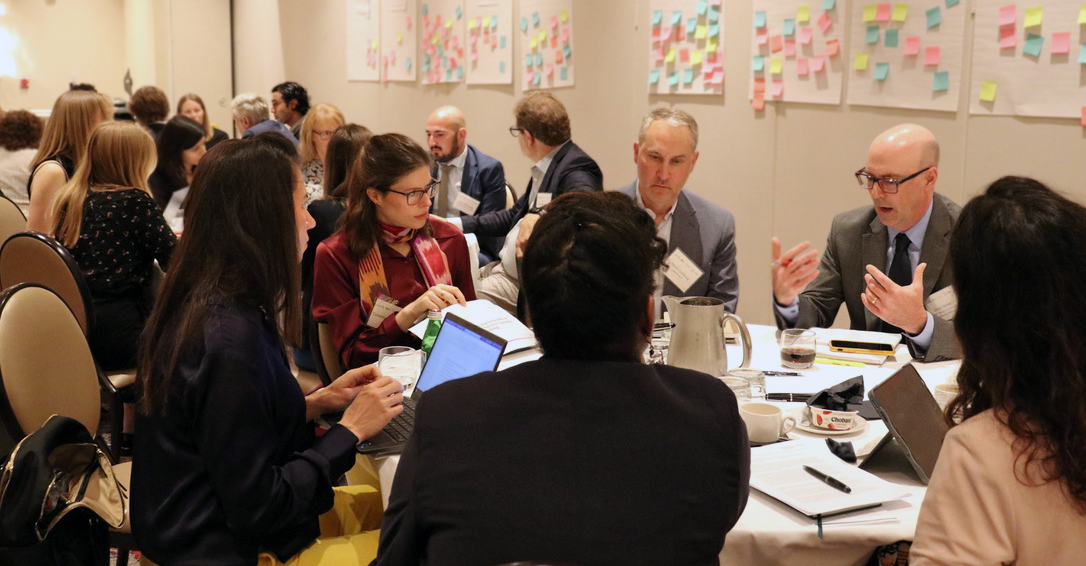In the face of a warming climate, rising inequality, and increasing geopolitical instability, the concept of resilience has never been more critical – or more complex.
With that in mind, global leaders gathered in Washington, DC, last week with a clear goal: to make resilience science practical and accessible. But doing so is no simple task.
“Resilience is a nice word,” noted Jorge Gastelumendi, the senior director of the Atlantic Council’s Climate Resilience Center and a participant at the workshop, “but when you start to break it down it gets complicated. This is an opportunity to have a conversation about this framework and for us to learn from it.”

That spirit of mutual learning and co-creation shaped “From Insights to Impact”, a high-level workshop where more than 50 experts from science, policy, and finance came together to stress-test a new tool: the Resilience Science Must-Knows—a set of distilled, evidence-based insights meant to drive more effective, coordinated action in the face of accelerating climate disruption.
The workshop was co-organized by Future Earth, the Global Resilience Partnership, Stockholm Resilience Centre at Stockholm University, the Atlantic Council’s Climate Resilience Centre, and the Resilience Hub. The half-day event marked a pivotal moment in the development of the Resilience Science Must-Knows, a forthcoming science report co-produced by Future Earth. Additional workshops for participants in Latin America and the Caribbean, Africa, and Asia are planned in May.
Turning Knowledge into Action
Similar to the 10 New Insights in Climate Science report, the Must-Knows aim to distill complex academic research into key messages that are clear, relevant, and ready to use. But its ambition goes further. The Must-Knows are intended to lay the foundation for an additional policy report, the Road to Action, that will support decision-making across sectors and serve as a tool for transformation, not just adaptation.
“What makes this initiative truly distinctive is not only the quality of science, but that science is being applied,” Nigar Arpadarai, the UN’s High-Level Champion for COP29, said during the event. “Leaders like you are testing, translating, and contextualising these insights… ensuring that science becomes practical, usable, and aligned with the real-world decisions that shape our future.”
Participants were first introduced to a long list of 13 draft Must-Knows that were organized into four categories: what resilience is, why it matters, what fosters it, and what needs to be considered. Through an interactive ranking process, six of the Must-Knows were prioritized for deeper exploration. These covered everything from the importance of anticipatory capacity to the role of inclusive finance.
Participants flagged missing perspectives, confusing terminology, and challenges in applying certain concepts across sectors. But they also shared rich insights from their work, spanning locally led adaptation, nature-based solutions, foresight and scenario planning, and climate finance, that helped connect the Must-Knows to real-world practice.

What’s Next?
The feedback gathered at the workshop will go directly to the editorial board, who will integrate it into their ongoing work of revising the Resilience Science Must-Knows, followed by further engagements throughout the year, including during London Climate Action Week, at UNFCCC’s Africa Regional Climate Week, Climate Week NYC, and at COP30 in Belém, Brazil.
By embedding science in the lived experience of practitioners, financiers, and policymakers, this initiative aims to help reframe resilience not as a buzzword, but as a practical, informed pathway to a more secure and sustainable future.














